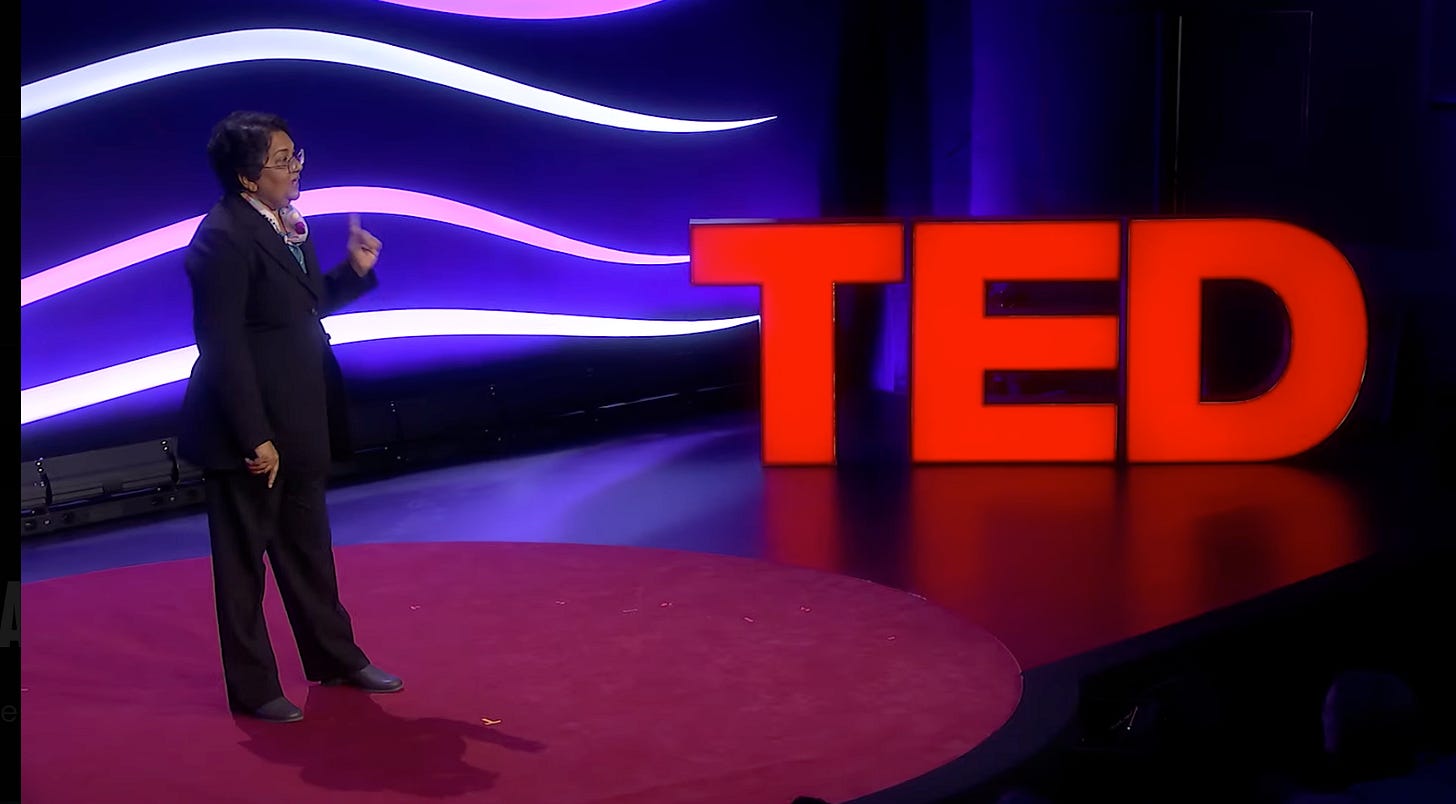When we get climate justice upside-down, it’s the poor that get hurt
Two perspectives on climate policy overreach + cartoonish backroom shenanigans from the Glasgow COP
“Imagine if we tackled greenhouse gas emissions in transportation by banning buses in poor neighborhoods while subsidizing private jets for the rich?
That would be completely upside-down. It would be totally unjust. And it couldn’t possibly work.
Well, that’s the same approach rich countries are taking today. The United States and many European nations are doubling down on oil, coal, and gas. Yet these same wealthy countries have pledged not to fund energy projects in poor countries if they run on fossil fuels.”
That’s the opening to a terrific new TED Talk from my friend and Hub board member, Vijaya Ramachandran.
I highly recommend watching the full 7 minutes, but Vij makes three big points:
Energy poverty is harming poor people in real and dangerous ways.
Poor countries bear almost no responsibility for causing climate change.
Overly aggressive measures, such as bans on financing for gas projects in poor countries, is counterproductive for both development and climate aims.
(You can see why we’re friends ♥️)
Vij ends her TED Talk with an impassioned plea for a more practical approach: yes, emphasize renewable energy but, as we do in the United States, let’s leave space for gas where it still makes sense.
US policy tries to balance climate and development
In many ways, US policy toward financing overseas gas projects has nuance, at least on paper, of the kind that Vij wants. The current bilateral approach and the US Treasury’s guidance to the World Bank are to move away from fossil fuel finance, but leave open a window for exceptions where no credible alternative exists.
What constitutes a “credible alternative” is, of course, the crux. At the Energy for Growth Hub, we’ve tried to articulate clear ways to make this work rather than allow sloppy thinking (or bureaucratic disincentives) or turn a reasonable exercise into a blunt-force prohibition.
Within the Hub, we have differing views on how such a scheme might work best. Vij & I lean toward a minimalist approach of screening by country income (say, by just exempting all projects in IDA-eligible countries from extra screening rules), while our colleagues Katie Auth & Rose Mutiso propose light-touch vetting of individual projects. Either way gets to the same result: pushing hard for a world of abundant clean energy, but not standing in the way of economic opportunity or energy security.
The game of Climate Chicken at the World Bank
All these debates are coming to a head at the World Bank, arguably the most important global institution for infrastructure in poor countries. For many years, the Bank has lived with two separate, often incongruous, climate and energy policies. IMO, that’s not a bad thing for an organization with multiple goals and multiple constituencies. Healthy tension is, well, healthy.
But the US and other rich-world shareholders are now pushing hard for the World Bank to do far more on climate. The fight really comes down to how precious resources will be allocated. The view from non-rich nations is nicely summed up in a new article by three World Bank board directors – representing 41 nations from Asia, Africa, Latin America, and the Caribbean – warning about climate over-reach.
“Letting the climate effort overshadow the World Bank’s broader objectives would be a grave injustice – and might not be the most efficient strategy.”
They worry that too much attention on climate will:
Hurt the fight against poverty if the Bank’s core mandate of reducing poverty and boosting economic growth is eroded.
Weaken country ownership if spending decisions change from locally-driven development plans to funding for global public goods.
Take from the poor to give to the (relatively) rich since any shift from a poverty focus (in low-income low emitters) to emissions reduction (in higher-income high emitters) will inevitably reallocate resources up the income ladder. (Another example of what Vij might call ‘upside-down.’)
The answer from the climate boosters is a ‘yes, both’ via another sizable capital increase. World Bank management is of course going through a transition to a new president in a few months, but the organization will say yes to all its shareholders – if they pay more. So far, the US Treasury is balking at a fresh capital injection, instead pushing the Bank to squeeze more capital out of its existing base. That game of Climate Chicken is happening right now.
It’s heartening to see the non-rich shareholders assert their views. But I’m skeptical that poor countries won't get screwed in the end.
Bonus revelation: What illegal shenanigans were happening behind the scenes of COP26?
Speaking of the poor getting cheated, we now know that one climate delegation used the Glasgow COP summit to negotiate a secret money laundering scheme with a Chinese crime boss. Among Zimbabwe President Emmerson Mnangagwa’s climate entourage was his senior diplomat Uebert Angel and his British sidekick Rikki Doolan. While Mnangagwa was on the COP stage pledging to fight climate change if only the US would remove sanctions, his personal representatives were offering to facilitate gold smuggling and washing dirty money using Mnangagwa’s own plane and the helpful assistance of the First Lady. The deal eventually fell apart over a $200,000 “appreciation” gift to the president.
Or did it?
Unfortunately for Prophet Angel and Pastor Rikki – oh yeah, the cartoonish duo also have their own evangelical church and claim supernatural powers – the Chinese mobster was really an undercover reporter for Al-Jazeera and the whole thing is caught on video. The entire scheme is helpfully explained over a riveting 4-part series, Gold Mafia.
I’ve written four international thrillers, all about wild backroom dealings of diplomats and global bad guys. This story, which feels straight out of HBO’s farcical Righteous Gemstones, is another case of truth being far weirder than fiction.
Enjoy.




